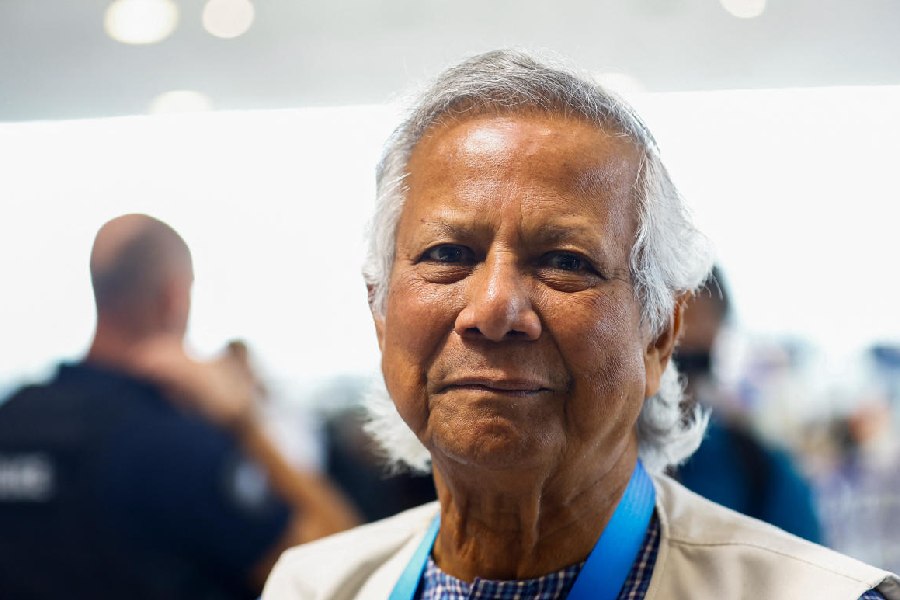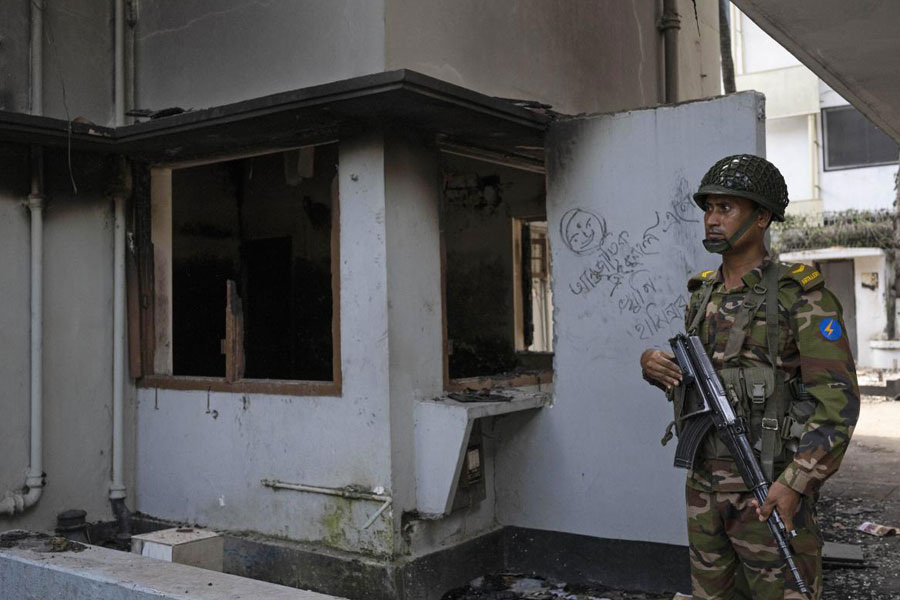Bangladesh's protest leaders said they expect members of an interim government, led by Nobel laureate Muhammad Yunus, to be finalised on Wednesday after Prime Minister Sheikh Hasina quit and fled to India following a violent crackdown on a student-led uprising.
Bangladesh's president appointed Yunus, who was recommended by student leaders, as the head of the interim government late on Tuesday and said the remaining members need to be finalised soon to overcome the current crisis and pave way for elections.
The interim government will fill a power vacuum left after Bangladesh's army chief announced Hasina's resignation in a televised address on Monday that followed weeks of deadly violence that ripped through the country, killing about 300 people and injuring thousands.
"It is critical that trust in government be restored quickly," Yunus, 84, told the Financial Times on Wednesday, adding that he was not seeking an elected role or appointment beyond the interim period.
His spokesperson said he is expected to return to Dhaka on Thursday after a medical procedure in Paris.
"We need calm, we need a road map to new elections and we need to get to work to prepare for new leadership," Yunus told the newspaper.
Hasina's resignation had triggered jubilation across the country and crowds stormed into her official residence unopposed after she fled, ending a 15-year second stint in power.
Public anger was also in part due to economic distress. Bangladesh's $450 billion economy expanded under Hasina as the mainstay garments sector grew but costly imports, inflation, unemployment and shrinking reserves in recent years pushed it to seek a $4.7 billion loan from the International Monetary Fund.
"The protests...have exacerbated downside risks to economic growth, fiscal performance, and external metrics," ratings agency S&P said in a note on Wednesday. "The damage to credit metrics may be contained if the sociopolitical situation normalizes soon and Bangladesh forms a new government."
Normalcy slowly began returning after Monday's chaos but protests broke at the headquarters of the Bangladesh Bank in Dhaka on Wednesday when hundreds of officials from the central bank forced four of its deputy governors to resign over alleged corruption, two sources at the bank said.
The bank did not immediately comment.
Hundreds of people gathered at a rally in Dhaka by the main opposition Bangladesh Nationalist Party, whose leader and former Prime Minister Khaleda Zia, 78, was freed from house arrest by the president on Tuesday.
Zia had feuded and alternated power with rival Hasina, 76, since the early 1990s and she was convicted for graft in 2018 but called the charges politically motivated.
Return to normalcy
Giant neighbour India, which has strong cultural and business ties with Bangladesh, evacuated all non-essential staff and their families from its embassy and four consulates in the country, two Indian government sources said.
Most schools and university campuses in Dhaka and other cities that shut in mid-July due to the protests, reopened while people took buses and other transport to offices and banks. The garments factories that had been shut for days also began opening on Wednesday.
The movement that toppled Hasina rose out of demonstrations against public sector job quotas for families of veterans of the 1971 war of independence from Pakistan, seen by critics as a means to reserve jobs for allies of the ruling party.
President Mohammed Shahabuddin has also recommended that a veteran of the war should be nominated to the interim government.
Pakistan's foreign ministry, commenting for the first time since protests broke out, said on Wednesday that "the government and people of Pakistan stand in solidarity with the people of Bangladesh, sincerely hoping for a peaceful and swift return to normalcy."
China, which over the years has expanded its influence in the region with its Belt and Road infrastructure projects, said it was closely following the situation.
"China is closely monitoring the development of the situation in Bangladesh and sincerely hopes that all parties and factions in Bangladesh will unite and restore social stability as soon as possible," the foreign ministry said in a statement.
Nahid Islam, one of the main leaders of the student movement, told reporters after the president's announcement that students have recommended 10-15 members for the interim government in an initial list they shared with the president.
Islam said he expects interim government members to be finalised in 24 hours starting from late Tuesday evening. The students' recommendations for the government include civil society members and also student representatives, Islam said.
Hasina landed in New Delhi on Monday and is staying at a safe house on the outskirts of the capital. Indian media reports have said that she plans to travel onwards to Britain, but the British Home Office has not commented.












